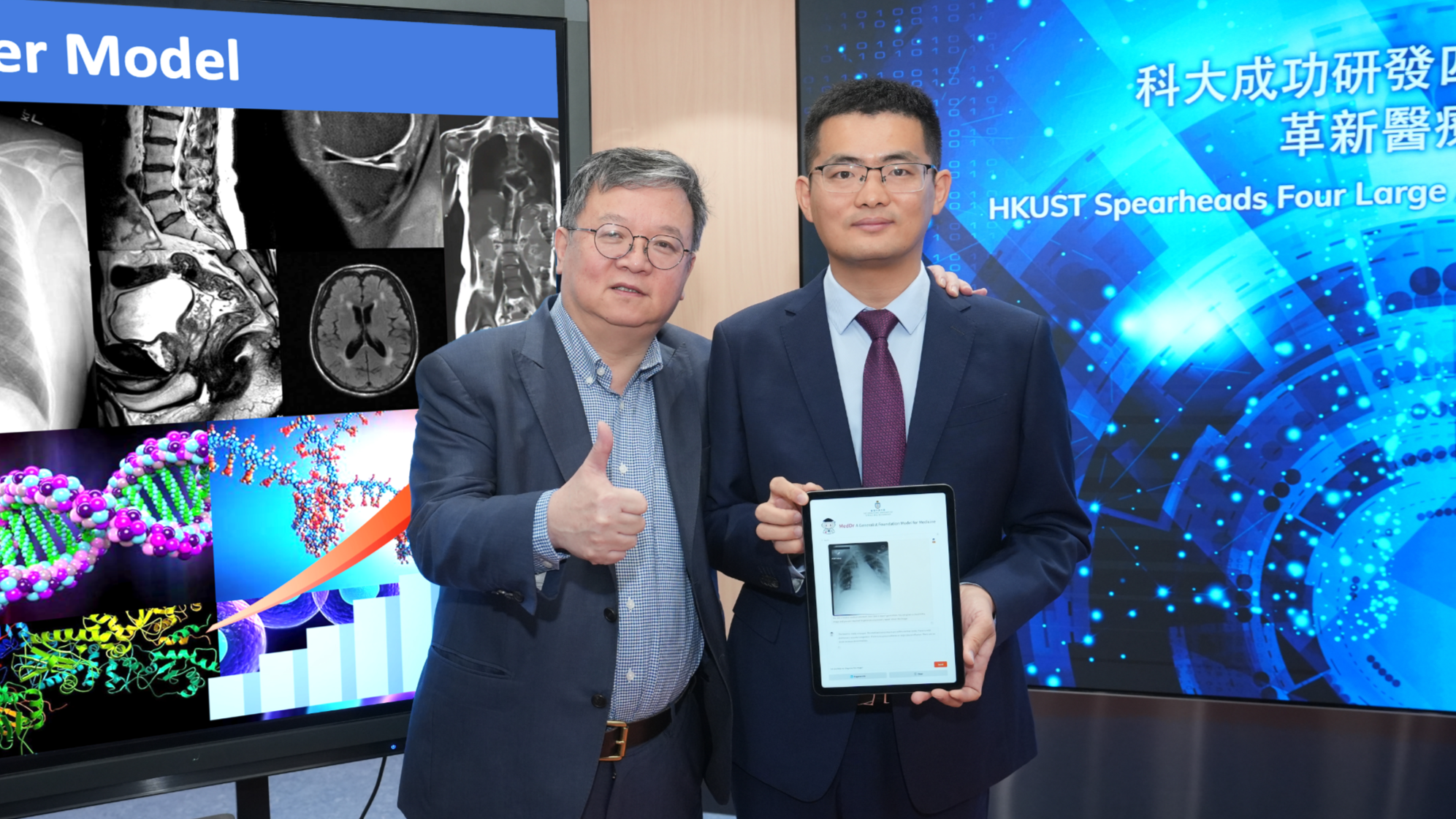
Hong Kong University of Science and Technology is on track to finalize a proposal for establishing the city’s third medical school, before the submission deadline on March 17, president Nancy Ip Yuk-yu said at a media reception on Wednesday.
The proposal will satisfy the 10 main parameters laid out by the special administrative region government while bearing the hallmarks of the university’s long-established edge in technology research and application, Ip pledged.
During the reception, senior administrators of the university unveiled a development trajectory that aims to reach new heights in global recognition, cross-regional collaboration, research application and business incubation, in response to the government’s requests to develop the city into international hubs for high‑caliber talent, innovation and technology, and health and medical innovation.
“Pursuing excellence in teaching and researching, and building a global faculty and student body has always been HKUST’s guiding principle,” Ip said.
The university also outlined other key moves as part of its ambition to establish the city’s third medical school.
ALSO READ: Task group to invite proposals on third HK medical school
A dedicated council advisory group and a planning committee for the new medical school have been formed since the school began its initiative, chaired and membered by leading local and global medical and education pundits.
Earlier last month, HKUST announced the establishment of a medical education task force dedicated to developing a world-class curriculum with a local focus, co-chaired by Fok Tai-fai, the former dean of medicine at the Chinese University of Hong Kong, and his former HKU counterpart, Raymond Liang Hin-suen.
The school’s bid to strengthen the transformation of biomedical research into clinical applications and medical talent cultivation were realized on Wednesday when teams led by HKUST faculties and alumni showcased four recently developed medical technology solutions — those of physiological parameter monitoring, histological imaging, clinical surgeries and Alzheimer’s disease detection.
HKUST Provost Guo Yike and Vice-President for Research and Development Tim Cheng Kwang-ting also officiated at the conference and shared some of the school’s major initiatives.
Highlights included the establishment of HKUST Shanghai Center in Xuhui district, which led to memorandums of understanding being signed with over 20 enterprises to support students’ research and internship needs, the planned opening of 13 new programs covering biomedical and health sciences, data analytics, and artificial intelligence, and five of HKUST’s applications have been granted subsidies by the government-run Research, Academic and Industry Sectors One-plus Scheme.


